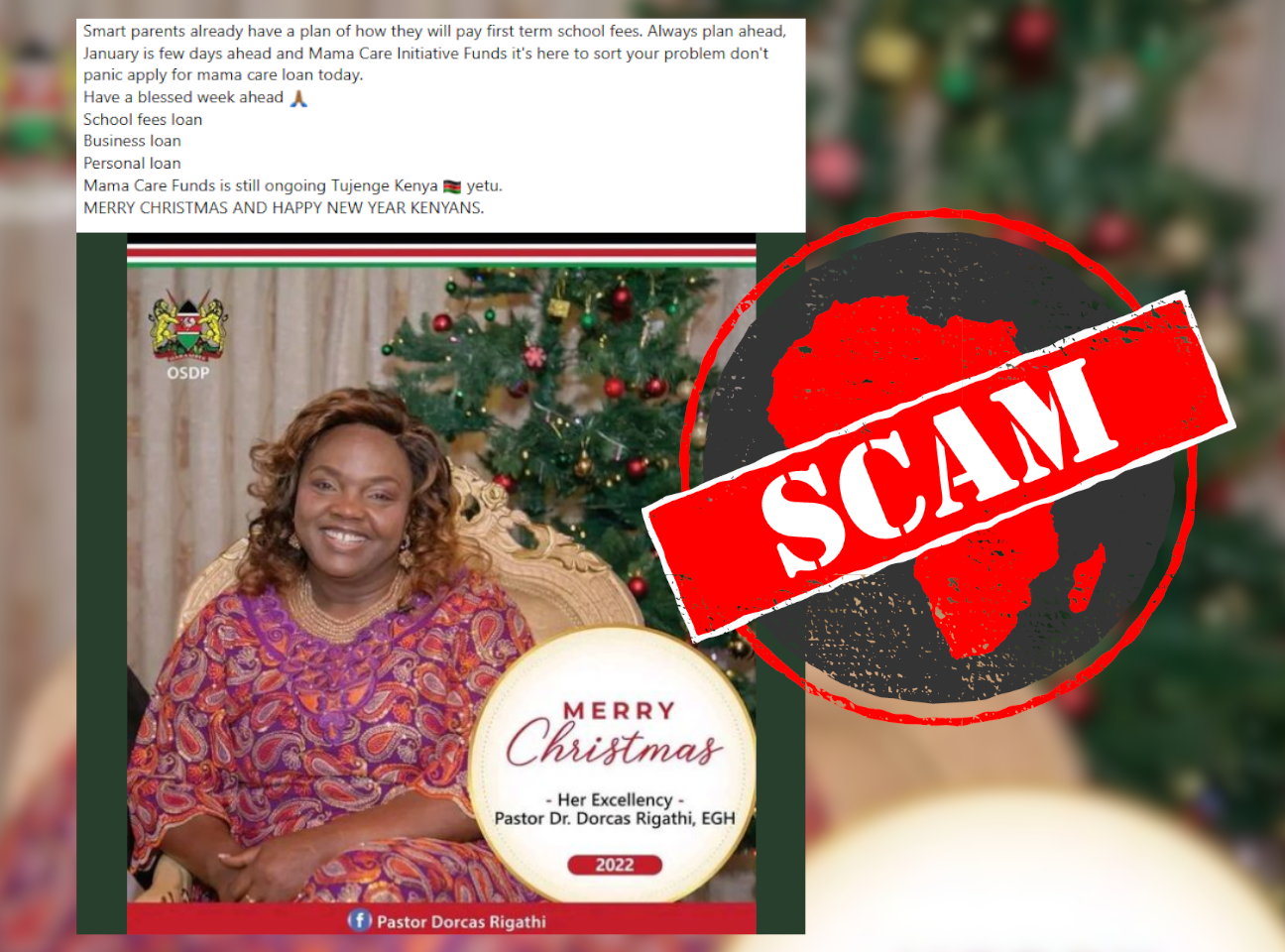IN SHORT: Pastor Dorcas Rigathi became a public figure after her husband was elected Kenya’s deputy president in August 2022. But it also made her a target of social media impersonators.
The Facebook page “Bishop Dorcas Gachagua” identifies itself as “the official page of deputy president's Wife Pastor Dorcas Rigathi Gachagua”.
Rigathi Gachagua is the deputy president of Kenya. His wife, Dorcas Rigathi, is a pastor.
The page was created on 5 September 2022. Its cover photo shows the couple.
Its most recent post, on Christmas Day, urges its 28,000 followers to apply for a “mama care loan”.
An earlier post on 1 December claims it can help Kenyans access school fees, business and personal loans. In another post we found the names of people who have supposedly received loans, as well as their ID numbers and the amounts they received.
Another page, “Bíshóp Dórcàs Gàçhágúa”, has similar loan offers. The page has 1,600 followers and uses a photo of the pastor as its profile pic.
We found other pages and accounts claimed to be run by Dorcas Rigathi here, here and here.
But do these Facebook pages really belong to the deputy president’s wife?

Imposter accounts offering loans? Scam alert!
Her official Facebook page is Pastor Dorcas Rigathi, as we have found before.
Although unverified, it has 85,000 followers. It was created on 28 February 2022, well before she became a public figure. None of its posts offer loans.
On 8 October, the page warned of fake Facebook accounts using her name.
“This is my only page, please do not entertain any other accounts under my name, or any other page using my picture with different names! This is just to raise awareness since my posers have been posting my picture with malicious captions,” the post reads.
Offers of loans, giveaways and jobs on Facebook by imposter accounts are often scams. Find out more in our guide to scams like this.
Republish our content for free
For publishers: what to do if your post is rated false
A fact-checker has rated your Facebook or Instagram post as “false”, “altered”, “partly false” or “missing context”. This could have serious consequences. What do you do?
Click on our guide for the steps you should follow.
Publishers guideAfrica Check teams up with Facebook
Africa Check is a partner in Meta's third-party fact-checking programme to help stop the spread of false information on social media.
The content we rate as “false” will be downgraded on Facebook and Instagram. This means fewer people will see it.
You can also help identify false information on Facebook. This guide explains how.




Add new comment